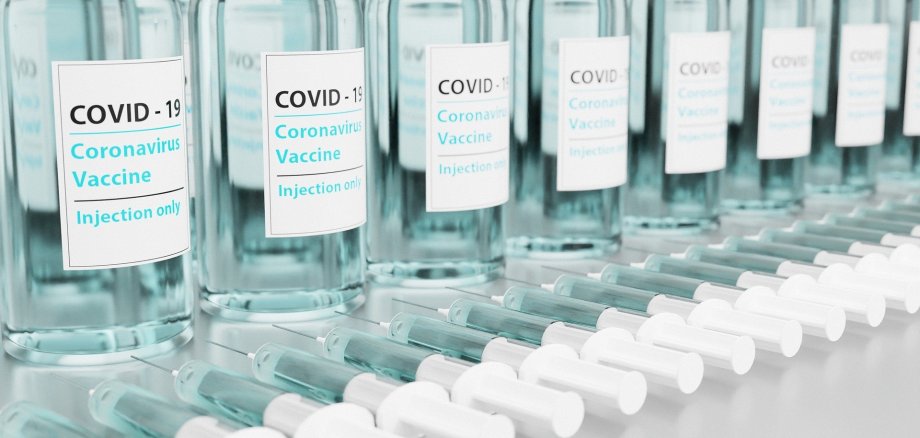County informs about mRNA vaccines
Vaccines - of whatever kind - are associated with many hopes of returning to a new normality as soon as possible. Dr Frank Schäfer, public health officer and deputy head of the health department, explains in an interview why the district recommends vaccination.
1. How do mRNA vaccines work? What distinguishes them from conventional vaccines?
Dr. Frank Schäfer: "With well-known vaccinations such as against influenza, measles or chicken pox, the pathogen itself is vaccinated in an attenuated form. The protection provided by the mRNA vaccine works by means of a clever trick: the vaccine does not bring the pathogen itself into our body, but only the blueprint of a harmless part of the virus. The latter reproduces a copy in its cells, simultaneously forms an immune response and produces defence substances against the virus. If we then actually come into contact with the pathogen, our body knows exactly how to deal with it. The vaccine does not prevent infection with the virus, but is intended to prevent the outbreak of the infection in our body or to ensure that an illness is significantly weakened."
2. can the vaccine genetically modify our genetic information?
Dr. Frank Schäfer: "The fact that the mRNA vaccine changes our genes is considered almost impossible by leading scientists according to the current state of knowledge. The genetic information of the virus that our body receives with the vaccination only serves as a messenger for the production of the defence substances. Afterwards, the components of the vaccine are broken down again by our body in a short time."
3. can vaccinated people still pass on the virus to other people?
Dr Frank Schäfer: "Whether vaccinated people can nevertheless pass the virus on to others has not yet been definitively determined according to the current state of science. But one thing is certain: the more severe the symptoms of a person with the disease, the more likely it is that the virus will be transmitted to others. Since the vaccine alleviates the course of the disease and thus also the symptoms, it can also significantly reduce the infection rate. That is our hope - and also the goal of vaccinations: Scientists assume that the pandemic will be contained when 70 percent of the population is vaccinated - and thus not immune to the virus, but against severe courses."
4. what side effects can there be?
Dr Frank Schäfer: "As with all other vaccinations, there may be isolated cases of typical vaccination reactions such as fatigue, headache or joint pain, nausea, chills, pain at the injection site or fever. However, these are no cause for concern and should usually disappear completely after a few days. They show that the immune system is reacting to the vaccine."
5. is there any information on the long-term studies?
Dr Frank Schäfer: "There are no long-term studies. However, leading virologists agree that, according to the current state of research, no serious long-term consequences are to be expected. All findings on the vaccine are monitored and evaluated with the utmost care."
6 What hurdles did the vaccine have to overcome before it was approved?
Dr Frank Schäfer: "Like any other vaccine, the one against the coronavirus is intensively tested and goes through very strict processes. The approval is subject to extensive scientific and legal controls, which have not been neglected even in the short time available. Among other things, new technologies, accelerated approval procedures and worldwide collaborations have contributed to the rapid development of the drug - but above all, the knowledge that is already held about similar or related viruses."
7. what is the advantage of vaccination?
Dr Frank Schäfer: "So far, there is no specific therapy against the virus that triggers the Covid 19 disease, which can be extremely severe or even fatal. Vaccination is intended to reduce outbreaks of the disease and mitigate its course. While we protect ourselves first and foremost, we also ensure that our health system can provide appropriate care for all those who fall ill. With a high vaccination rate, it is hoped to quickly get the pandemic under control so that we can return to normality."
